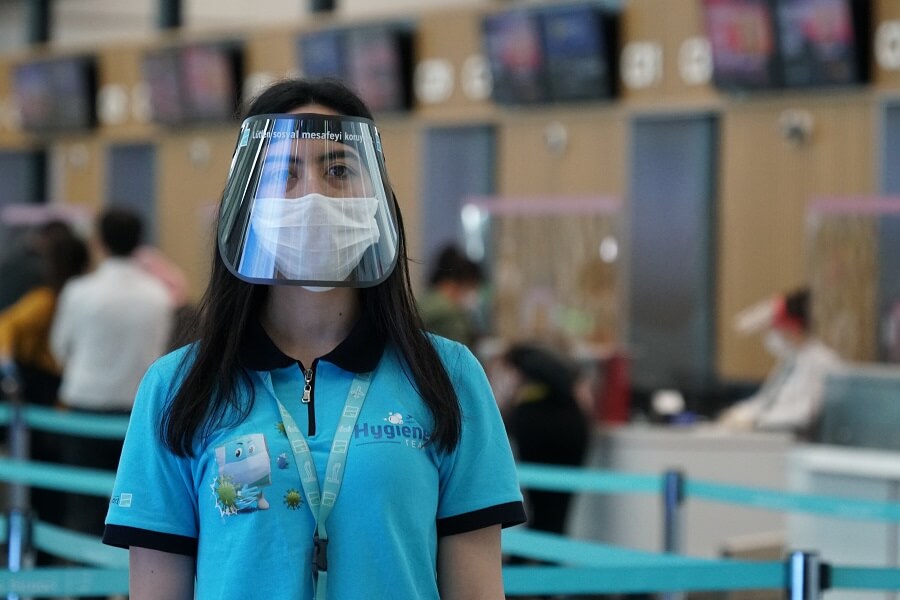Minister Bozinovic: Import of Coronavirus From Serbia Higher Than From BiH
Minister Bozinovic has discussed the situation with the Croatian-Bosnian border, which has irritated many and left some feeling suspicious about the motives behind it.
Many have been asking the question of just why the Croatian border with Bosnia and Herzegovina is going to be opened so early following a significant ''import'' of new coronavirus cases from that country. With many citing the upcoming elections, due to take place this weekend, others feel that the opening of that border negates everything that has been done so far in regard to anti-epidemic and restrictive measures.
In Petrinja, Minister Bozinovic talked to reporter Vanja Kranic from N1 television about the previously announced abolition of mandatory self-isolation for people entering Croatia from Bosnia and Herzegovina.
"We're still involved in these talks as the presiding [over the rotating presidency of the EU] country. The EU intends to open up to about fifteen countries, including Serbia and Montenegro. As far as Croatia is concerned, we will have Bosnia and Herzegovina on that list. You know that we had imports of the virus from those countries in the past few days, but it was several times higher from Serbia than it was from BiH,'' explained Minister Bozinovic.
He added that what is important is that we have hotspots in Croatia that are firmly under control. "It isn't something unexpected that the numbers are growing not only in Croatia, but also across Europe. Apparently, these all regard milder clinical pictures,'' he pointed out.
When asked whether the Republic of Croatia will still open the border with Bosnia and Herzegovina, even if this non-EU European country fails to find itself in the recommendations of the European Union, he answered:
''Recommendations are recommendations. It's difficult to justify the fact that we had 25, 26 entries of the virus from Serbia, to whom we're opening our borders and eight entries from Bosnia and Herzegovina where we should keep the borders closed,'' Minister Bozinovic told N1.
A more detailed report can be read by clicking the link in the first paragraph of this article.
For more on coronavirus in Croatia, follow our dedicated section.
City of Novalja: No Music Festivals on Zrce Beach this Summer
July 1, 2020 - The Novalja Civil Protection Headquarters says no to music festivals on the famous Zrce beach.
HRTurizam reports that on June 29, 2020, the Civil Protection Headquarters of the City of Novalja held a video conference to discuss the current situation in the City of Novalja regarding the COVID-19 pandemic, with an emphasis on events planned to be held in nightclubs on Zrce beach.
Namely, the clubs on Zrce have announced that they will open their doors in the first week of July, namely the clubs Kalypso, Papaya and Nomad, while the club Noa has been operating for the last twelve days, of course with all the recommendations and measures. This news raised a lot of questions in the media, even in Slovenia.
The City of Novalja reacted with the mentioned session at which they pointed out that no electronic music festival has been organized in the area of Zrce beach in agreement with the owners of clubs and festivals, and stressed that the City of Novalja does not want to issue any consent for music events on Zrce beach.
Given the recent events in the Republic of Croatia, and related to the appearance of the coronavirus in some nightclubs, the Headquarters decided that this summer tourist season will not issue approvals to clubs and concessionaires on Zrce beach for festivals, after parties and similar parties. The same goes for party boats.
It was proposed that the same Conclusion be forwarded to the Municipality of Kolan, where the Noa Club and other smaller clubs are located, and which was accepted. An identical conclusion was agreed during the day at the session of the Civil Protection Headquarters of the Municipality of Kolan.
Furthermore, the Headquarters has decided that no further concerts, festivities and outdoor parties will be held until further notice, where a larger number of visitors can be expected.
By the way, there are no people infected with the coronavirus in the City of Novalja. According to the eVisitor system, until June 28, 5,293 tourists (without occasional visitors or weekenders) were registered in the City of Novalja, which is 53.28% compared to the same day last year. Most of the tourists (57.05%) are staying in the Strasko camp.
To read more about lifestyle in Croatia, follow TCN's dedicated page.
Croatia Confirms 52 New Coronavirus Cases
ZAGREB, June 30, 2020 - Fifty-two new coronavirus cases have been confirmed in Croatia in the last 24 hours, bringing their total to 2,777, the national coronavirus response team told a press conference on Tuesday.
"We have 52 new cases. Over 4,000 people are in self-isolation and two are on ventilators," epidemiologist Krunoslav Capak said, adding that the number of active infections is 515.
He said that 75 people infected with the novel COVID-19 virus are being treated in hospitals.
To date, 79,104 people have been tested, including 921 in the last 24 hours. A total of 2,155 infected persons have recovered and 107 have died.
After a very favourable epidemiological situation, Croatia has seen a rise in the number of cases as a result of a failure by people to adhere to the necessary measures and because of imported cases.
"We had several good weeks, after which we had a rise in the number of cases because of imported cases and failure to adhere to the measures," Capak said.
Slovenia Warns Croatia to Close Nightclubs Amid Coronavirus Re-Emergence
The Croatian situation with the coronavirus pandemic has been smouldering yet again ever since the holding of a highly questionable tennis event in the Dalmatian city of Zadar. Adria Tour saw the re-emergence of the virus following two weeks or relative peace. Nightclubs in Zagreb have also been an issue, causing the Croatian capital to become a coronavirus hotspot once again.
As Poslovni Dnevnik writes on the 29th of June, 2020, Slovenian Government spokesman Jelko Kacin announced that Croatia could be removed from the list of Slovenia's list of safe countries because of the escalating situation.
This statement from the Slovenes comes despite the fact that the professionals here claim that it isn't something to be too concerned with at this moment in time and that the health care system is coping well.
''Slovenia expects Croatia to take appropriate measures and ban the gathering of large numbers of people at parties,'' Jelko Kacin said today, announcing that Slovenia could remove Croatia from the list of safe countries because it is likely to reach a cumulative value of 10 infected people per 100 thousand inhabitants in fourteen days.
''This doesn't mean that I will advise people not to travel there, everyone can decide for themselves, but the warning alone is strong enough,'' said Kacin. The number of coronavirus cases in the Republic of Croatia has unfortunately increased dramatically in recent days, and Slovenia is closely following developments. Four new cases of the infection have been reported in the country today.
''The focus is in the City of Zagreb. Surprisingly, Croatia decided to open its nightclubs, a move neighbouring Slovenia never did. However, there are also problems with data control. I think there are enough reasons for concern and action.
The prime ministers have been talking, and Slovenia expects Croatia to give up on these night clubs, which has proven to be a source of infection coming from everywhere, including from South Korea,'' he said, adding that "the younger generation is hiding symptoms."
For more on coronavirus in Croatia, follow our dedicated section.
Mask Prices Rise as New Croatian Coronavirus Developments Unfold
As Poslovni Dnevnik writes on the 29th of June, 2020, due to the new circumstances and the mandatory wearing of protective masks in public institutions and transport, the City of Zagreb, Zaprešić and Velika Gorica are currently among the cities that have decided to distribute protective masks to pensioners free of charge amid the ongoing coronavirus pandemic.
The sharp rise in the number of those infected with the new coronavirus warns of the importance of responsibility towards others. The focus is on protective masks, which makes their demand grow day by day, according to a report from RTL.
We have to use them in public transport, and many continue to use them when out on the street, in cafes and in shops. Protective masks have become our first barrier against the coronavirus infection. Increasing demand has also caused prices to rise on the world market, including here at home on the Croatian market.
The retail price of masks doesn't depend on pharmacies at all. The price was once somewhere around 50 lipa. When the coronavirus epidemic started, masks suddenly became a very desirable commodity. The most expensive plain mask was then around 19 kuna.
According to a survey conducted among city and private pharmacies, the price of a disposable surgical mask ranges between 5 and 6 kuna per piece in city pharmacies, and in private pharmacies - from 3 kuna and 60 lipa to 7 kuna and 17 lipa. If we were to calculate the average price of a mask on a monthly basis for a family of four, with each member using one protective mask per day, the price would be 660 kuna per month. A price not many can necessarily afford.
Due to the new circumstances and the mandatory wearing of protective masks in public institutions and transport, the City of Zagreb, Zaprešić and Velika Gorica are currently among the cities that have decided to distribute two protective masks to pensioners free of charge.
For more on the coronavirus pandemic in relation to Croatia, follow our dedicated section.
Coronavirus Cases Rise in BiH: Why is Croatia Opening Borders Now?
June 30, 2020 - The Croatian Minister of Interior Davor Bozinovic announced yesterday that a decision would be made "no later than today" to lift the mandatory two-week self-isolation for those entering Croatia from Bosnia and Herzegovina.
Index.hr reports that the announcement came just five days after stricter measures were introduced for Serbia, Kosovo and Macedonia at the same time.
But apart from the fact that the measure, which is now being repealed, was introduced only a few days ago, there are two other important aspects of the story which should not be overlooked.
The first is the situation with the number of patients in Bosnia and Herzegovina at the time when stricter measures were introduced, and the second is the situation with the number of patients today when the measures are lifted.
It would be expected that the epidemiological situation in BiH has improved in the meantime, so that the measures will be relaxed, as announced by Prime Minister Andrej Plenkovic. But that is not the case.
On the day the decision on mandatory self-isolation was made for entry from BiH, there were 84 infections in that country. The day before the decision, there were 63 infected. Even days earlier, moreover, since the beginning of the coronavirus epidemic in that country, the daily number of newly infected did not exceed 100.
So, how are things now that they've decided to lift the mandatory self-isolation for people entering Croatia from BiH?
There were twice as many cases in BiH yesterday than when stricter measures were adopted at the borders.
Yesterday, when Bozinovic announced the easing of measures, BiH had 128 newly infected.
The day before, they had 107 new cases.
They had as many as 179 new cases on Saturday, and the daily number of newly infected was well above 100 in the days before.
When the two-week self-isolation measure was introduced for travelers entering Croatia from Bosnia and Herzegovina, Serbia, Kosovo and Macedonia, it was explained by the poor epidemiological situation in those countries and the fact that most new cases in Croatia came from those countries.
"As for the decisions, they are based on the opinion of the medical experts. These decisions were made based on the recommendations of epidemiologists with regard to the situation in neighboring countries. We have an increase in those infected, and most of them came from BiH and Serbia. We will monitor everything that happens. We will make decisions faster and change them if necessary. The decision is valid for everyone. All persons who come to these countries, regardless of citizenship, must be in self-isolation," Bozinovic said at the time.
But, as we can see, now that the borders with BiH are reopening unconditionally, the situation there is worse than it was, and the daily numbers of newly infected are much higher than they were when the decision was made. The logical question, therefore, is why the decision on stricter measures at the BiH border was made when the epidemiological situation in that country was significantly better than now, when the decision is revoked.
"We are in the phase of dancing with the virus, and we are analyzing it daily. The EU will probably come out with recommendations, as these talks are underway today. We will probably liberalize the border crossings to some extent when it comes to EU citizens and our neighboring countries. This will mean entering the Republic of Croatia in a way that all those who enter adhere to epidemiological measures and would no longer mean the mandatory self-isolation for those who come from BiH. I expect that no later than tomorrow," said Bozinovic yesterday, which also hinted that the borders with Serbia could be opened, where the number of newly infected people is stagnant and around 250 for several days.
It should also be mentioned that BiH authorities negatively reacted to the decision on stricter measures at the border, and the country's foreign minister Bisera Turkovic announced reciprocal measures, which she withdrew after new announcements from Croatia. However, it is unlikely that the announcement of reciprocal measures from BiH forced the Croatian authorities to withdraw the decision, which leads us to another possible and much more probable reason - the elections to be held on Sunday.
After all, the president of HDZ BiH clearly explained it yesterday: "No border can separate the Croatian being and one nation into two homelands. Thank you to Prime Minister Plenkovic for his quick reaction and rational decision."
For the latest travel info, bookmark our main travel info article, which is updated daily.
Read the Croatian Travel Update in your language - now available in 24 languages
Join the Total Croatia Travel INFO Viber community.
To read more breaking news in Croatia, follow TCN's dedicated page.
Safe Tourism Certificate Program: How Turkey is Handling Tourism, Reports Croatian Correspondent
June 29, 2020 - How are other tourism countries preparing for the season in the corona era? We are delighted to welcome Turkey-based correspondent Maja Kuzmanovic to TCN, starting with a really interesting look at the Turkish Safe Tourism Certificate Program.
Is safe tourism possible during a global pandemic? This question is bothering Mediterranean countries who are trying to save at least part of the 2020 summer season.
In the case of Croatia, which opened to tourism as early as mid-May, many details of the COVID-19 virus protocol (hereinafter the coronavirus) more than a month after the opening of the borders are still not clearly defined. While Croatian tourist cities are losing their nerves and renters are in a dilemma whether to open their apartments to foreign guests, Turkey has introduced a “Safe Tourism Certification Program”. The introduction of this program began in early May, two months before the country opened to tourism.
The certificate of safe tourism is a sort of HACCP for the prevention of the spread of coronavirus, it is based on 132 health and hygiene criteria and it also includes employee education.
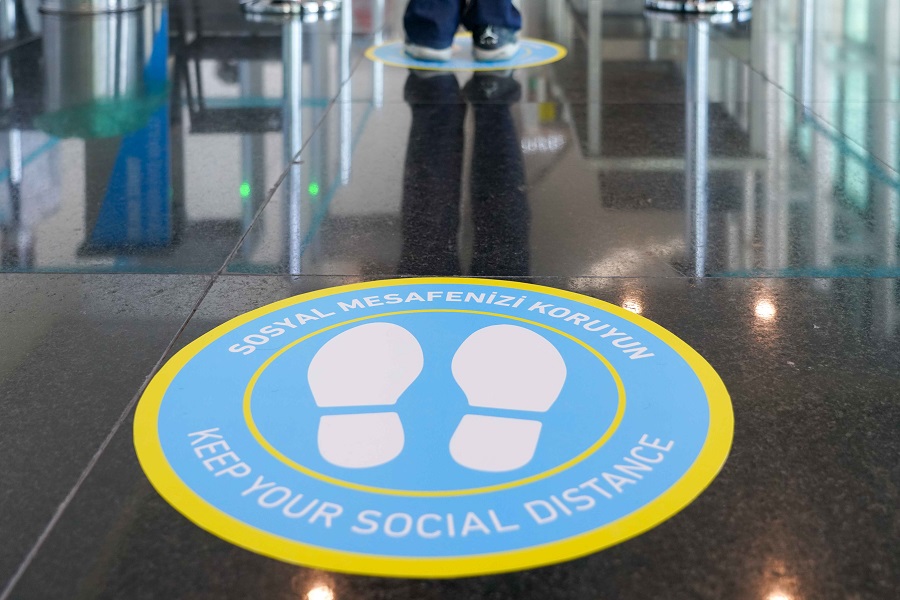
The program embraces all facilities that provide accommodation and transportation, as well as archeological parks, museums and entertainment venues.
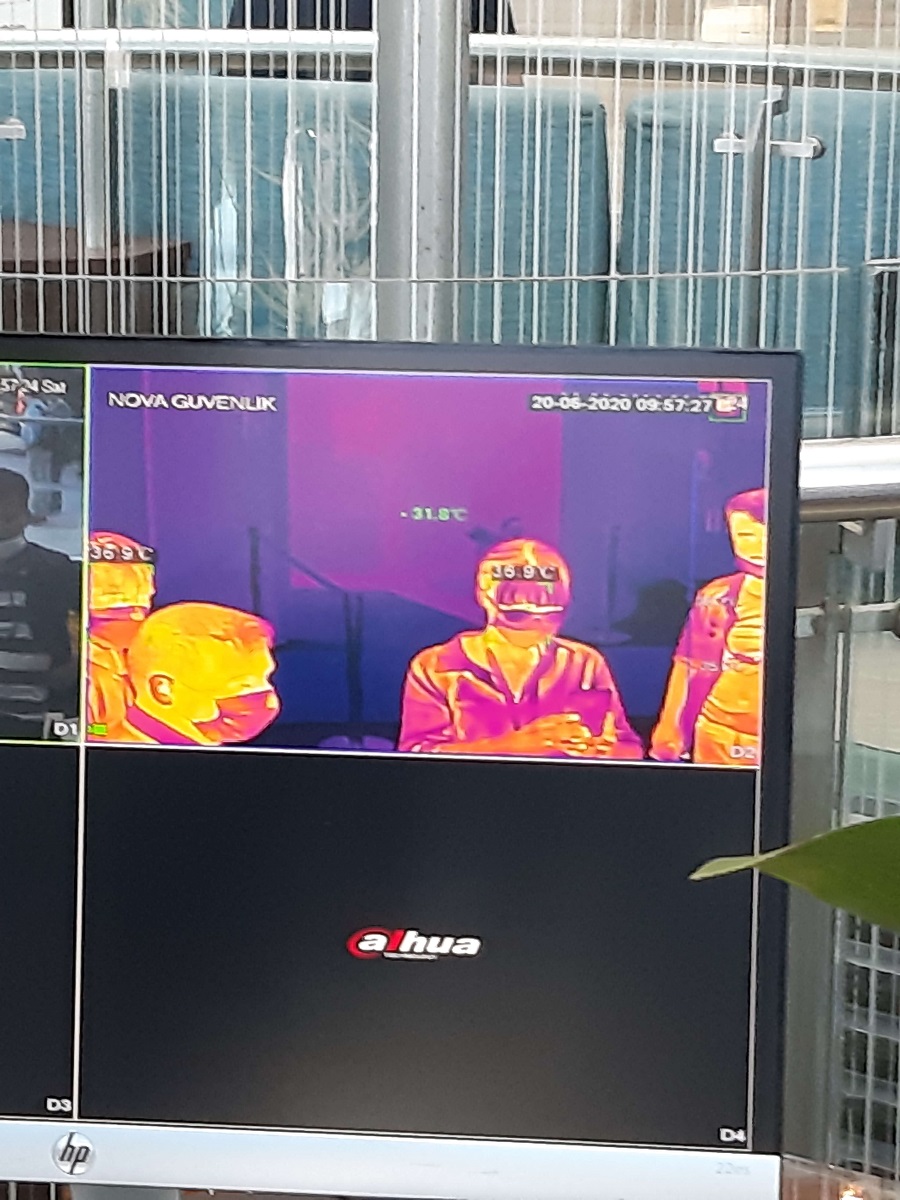
Thus, a special part of the program refers to airports, airlines, highways, tourist facilities and occasional transport companies that provide transfer and transport services for tourist tours. Passengers encounter the new protocol upon arrival at the airport where their temperature is measured by thermal cameras, and if it is higher than 37.8 C or there are some other symptoms, they undergo a free of charge coronavirus test.
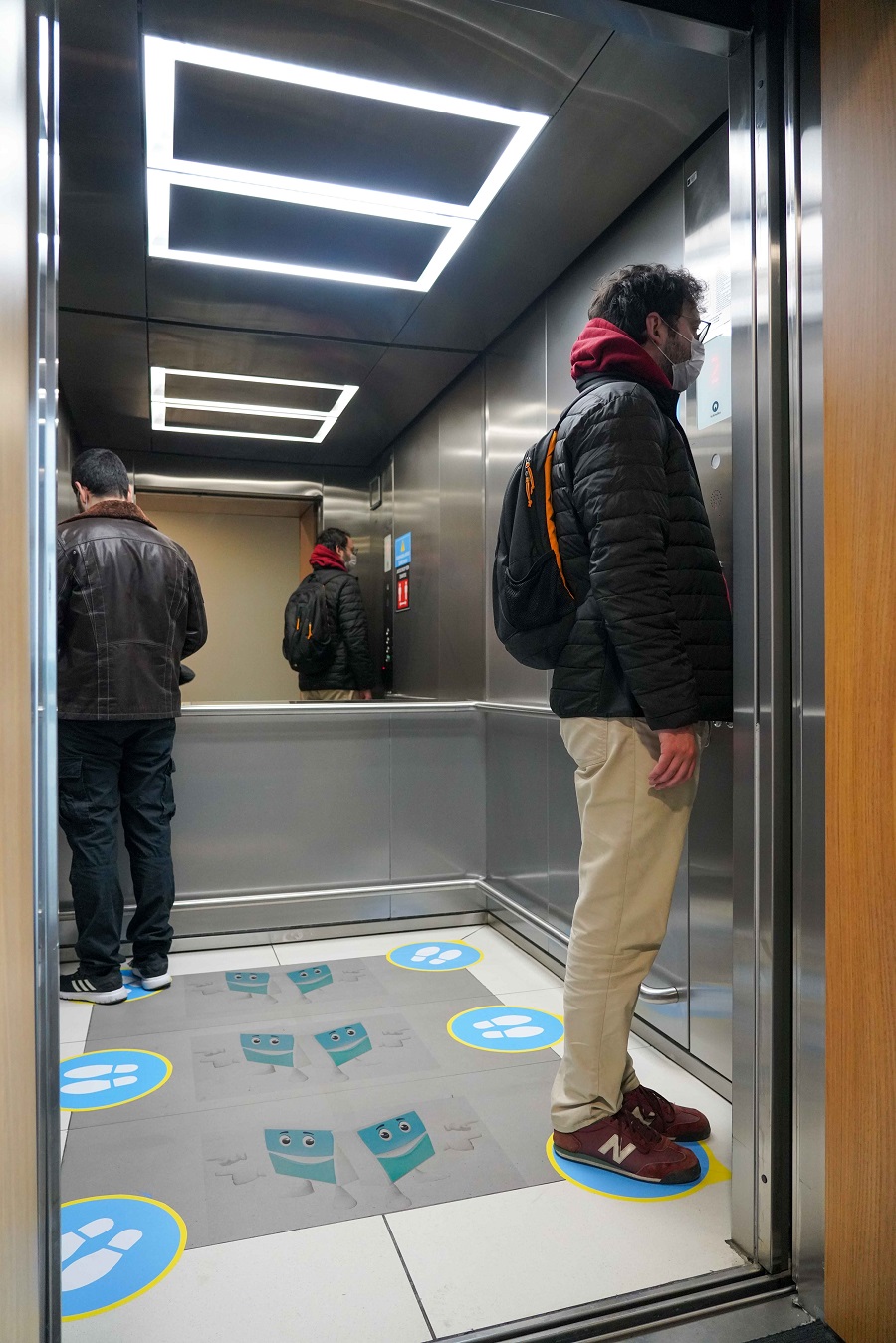
If the test result is negative, passengers continue their journey. In case of a positive result, guests are sent to the hospital where, depending on the severity of the disease, they stay for treatment or are accommodated in a hotel. All hotels are required to provide a special section of the facility for guests infected with coronavirus and for those in quarantine. They are also required to allow sick guests to stay at the hotel's expense until complete recovery.
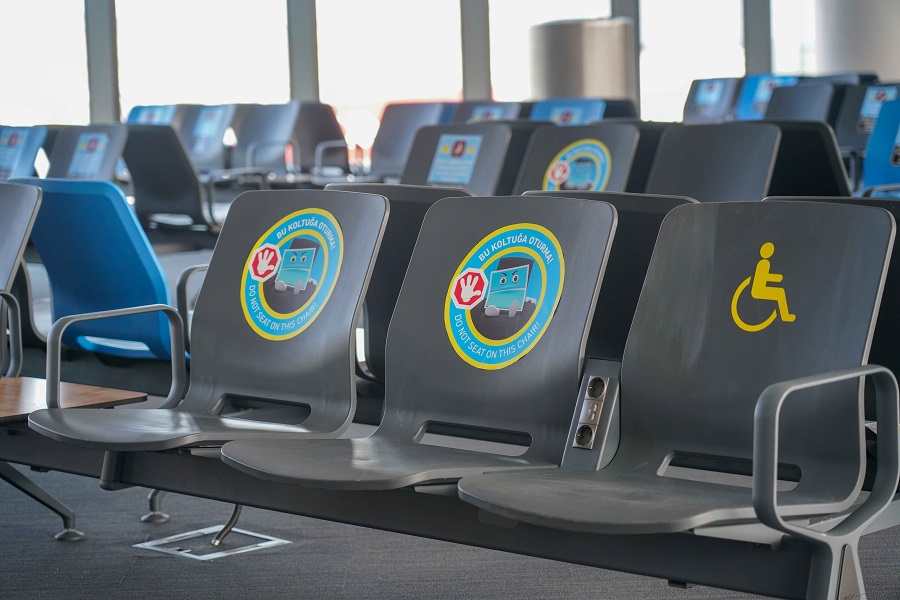
Treatment of foreign guests is free of charge and the costs are covered by the state of Turkey. From July 1st, Turkey is introducing the “COVID-19 tourist protection insurance” which will be available for purchase online, at travel agencies and airports. There will be three packages at the price of € 15, € 19 and € 23, which cover treatment costs in the amount of € 3,000, € 5,000 and € 7,000. According to Turkish statistics, the cost of treating a seriously ill patient with coronavirus averages € 4,000.
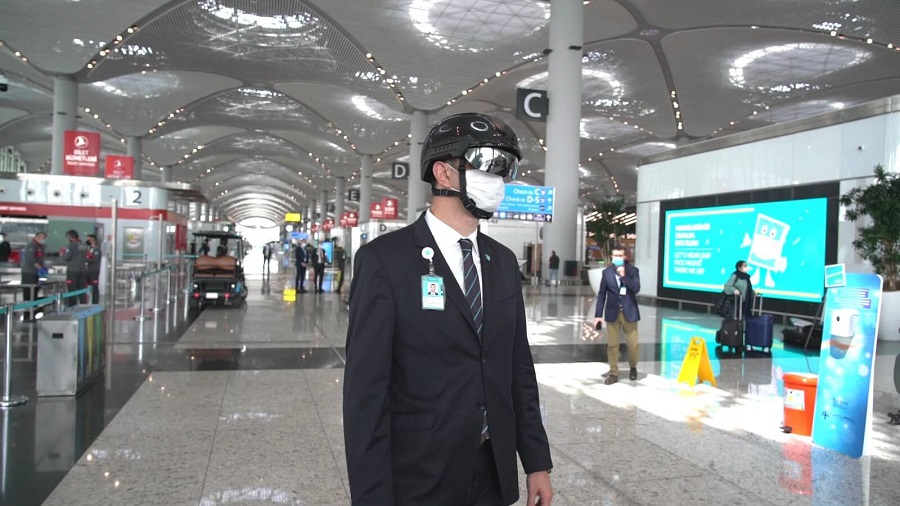
In order to reduce the number of visitors, only those presenting an airline ticket and with a mask on their face can enter the airport. Special attention is paid to the physical distance of 1.5 m and the signs with the direction of movement are placed everywhere, both on the escalators and in the elevators. Also, sitting in the waiting rooms, except for the disabled, is forbidden. Disinfectant kiosks can be found at every turn, and passengers are constantly warned about the rules. Upon entering the aircraft, packages with personal protective equipment (PPE) are distributed, and similar is done in the hotels too. Thermal cameras are also located at the hotel’s entrances while guests on arrival fill out a form with questions about their health and movement in the last 14 days.

Self-service in the hotel restaurants is no longer available, and the food counters and servers are separated by strips from the guests. Masks are mandatory, and even beach guards wear them. Rooms must be disinfected daily and 12 hours must elapse between the departure and arrival of guests. Tourist buses are filled with 50% of the capacity, ie every other seat, and before entering the vehicle the body temperature is measured, as well as at the entrance to the archeological parks, shopping malls and pedestrian zones.
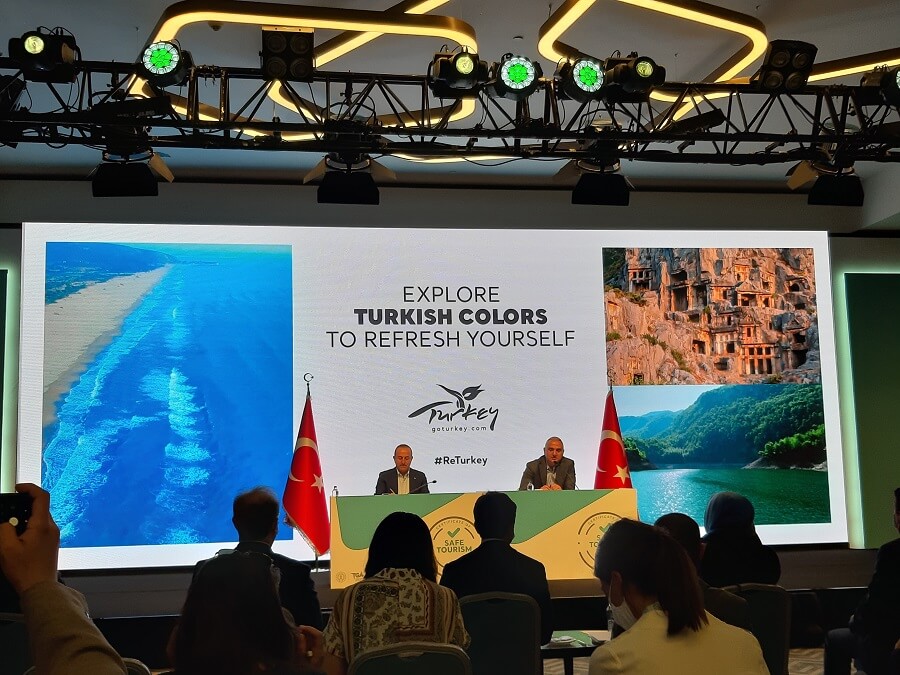
The body temperature of the author of this article was also measured upon returning from the toilet during the break of the concert which was held on June 20 on the occasion of the promotion of the certificate of safe tourism in the ancient theater in Aspendos, near Antalya. - "This is the worst crisis that has ever hit tourism, and we must all adapt to the new normal." The program we implement requires significant investments, but offers maximum possible protection. In the process of normalization of life, one of our key points is tourism. “ - Turkish Minister of Culture and Tourism Mehmet Nuri Ersoy stated at the press conference in Antalya.
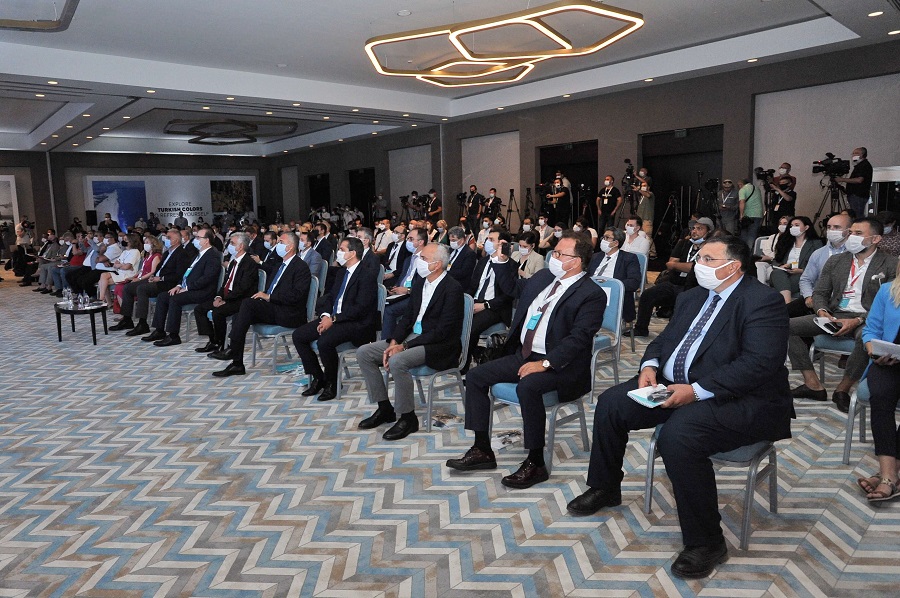
The first official case of coronavirus in Turkey was registered on March 11 2020, schools and universities were closed immediately, and within the next two weeks normal life stopped. Traffic between cities was cut off, borders were closed and air traffic was stopped. A partial lockdown was introduced with the purpose of saving human lives and partly the economy, exempting only the working population from these measures. For citizens aged 65 and over and for the chronically ill - the most vulnerable part of the population, as well as for those under the age of 20, the curfew was imposed until mid-June. Weekends and holidays curfews for the entire population were regularly imposed in all major cities until June 1, so the Turkish people spent even the Ramadan Eid holidays in their homes.
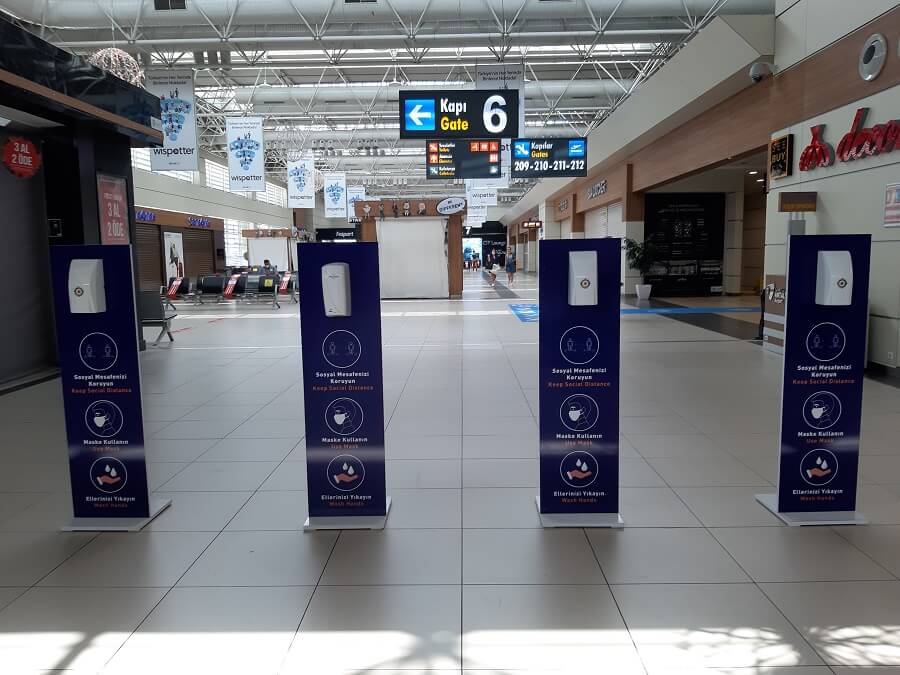
Turkey, with 197,239 cases, is the 14th country in the world in terms of confirmed cases of coronavirus, of which 85 percent have been cured, with 5097 deaths (statistics for 28.06.2020). Wearing masks is mandatory indoors and on public transport, and in the cities of Istanbul, Ankara and Bursa outdoors as well. The fines for not wearing masks and violating the quarantine and curfews go up to € 700. While the city of Istanbul, with the population of 15.5 million, accounts for about 60% of coronavirus cases, a significantly smaller number of patients have been reported in tourist centers in southern Turkey.
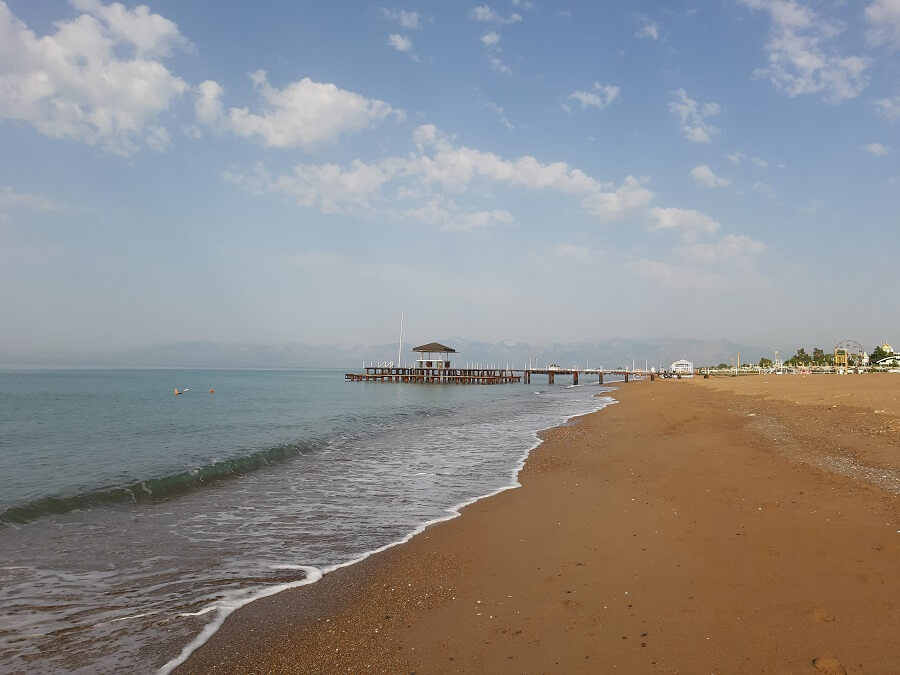
Thus, in Antalya (population 2.4 million), which accounts for 48% of Turkey's tourism revenue, 500 citizens have fallen ill since the beginning of the pandemic, 14 of them with a fatal outcome.
As far as hospitals are concerned, Turkey has the highest number of intensive care beds per 100,000 inhabitants in the world (40), and hospital occupancy at the peak of the pandemic in mid-April, when the daily number of infected reached 6,000, did not exceed 80%. In April Turkey started domestic production of respirators, the mass production of surgical masks, as well as alcohol. For months, the most sought-after product on the market has been cologne, which was widely used in restaurants and households even before the arrival of the coronavirus.
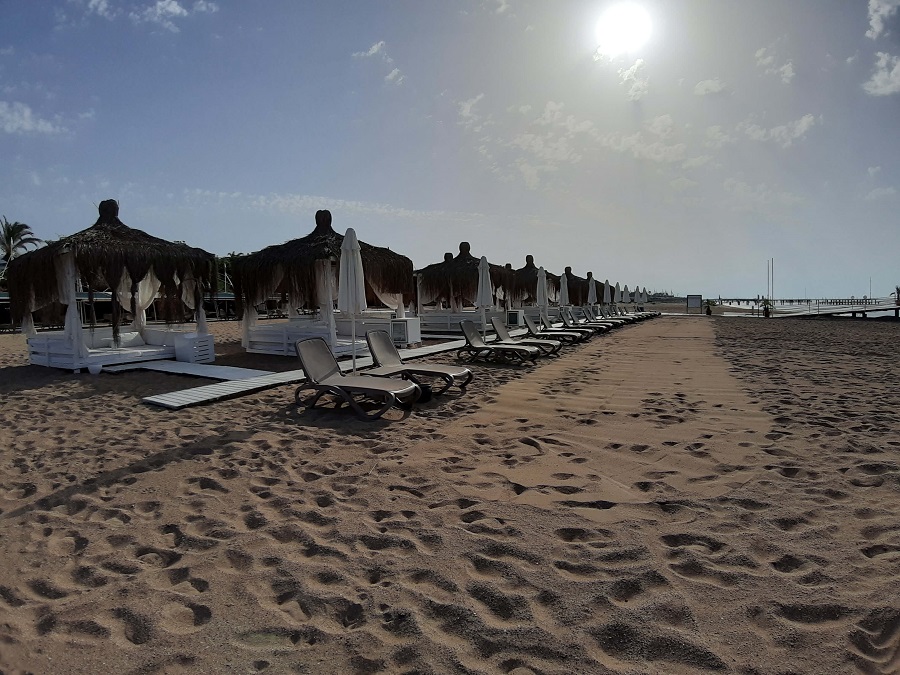
The re-establishment of international air traffic began in mid-June, and flights to most EU countries, as well as to Croatia, will start on July 1st after which the arrival of the higher number of foreign tourists is expected. Until July, all the major airports in Turkey will have test stations and the passengers will be able to take the test for the price of € 15 before the return flights. Turkey as a non-EU country, already has an agreement with Germany regarding quarantine upon return to the home country. Passengers should be tested up to 48 hours prior to departure, and if the test result is negative, a 14-day quarantine is not required. Germany has the largest Turkish diaspora, and Germans are the second most frequent guests after the Russians.
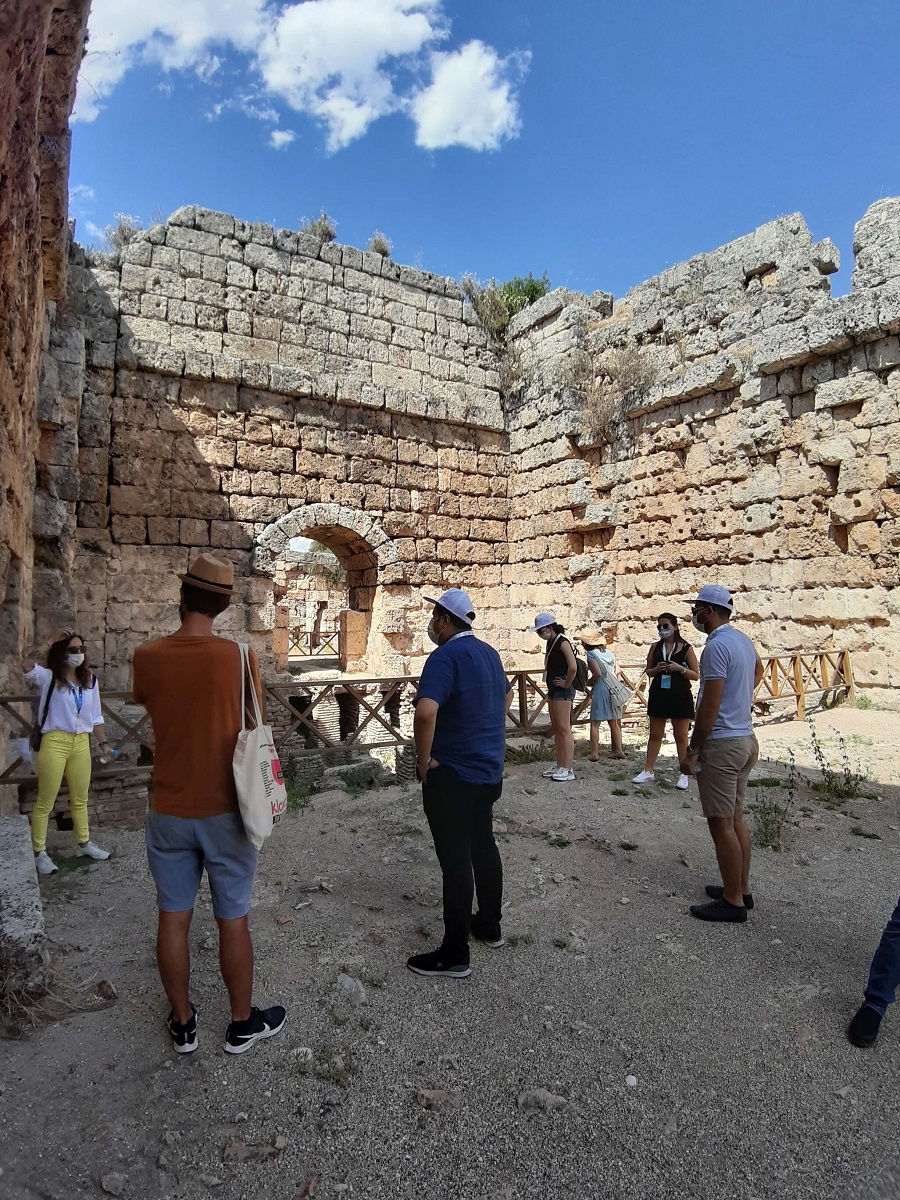
Turkey is the sixth most visited country in the world in terms of annual number of visitors with 51.8 million in 2019, out of which 86 percent were foreign (source UNWTO). The economic contribution of tourism in the GDP is 12 percent, while in Croatia the share of tourism in the GDP is 25 percent. In the first five months of 2020, there was a 66 percent decline in foreign arrivals, ie 8.5 million arrivals. It is difficult to predict to what extent this number can be compensated in the second half of the year.
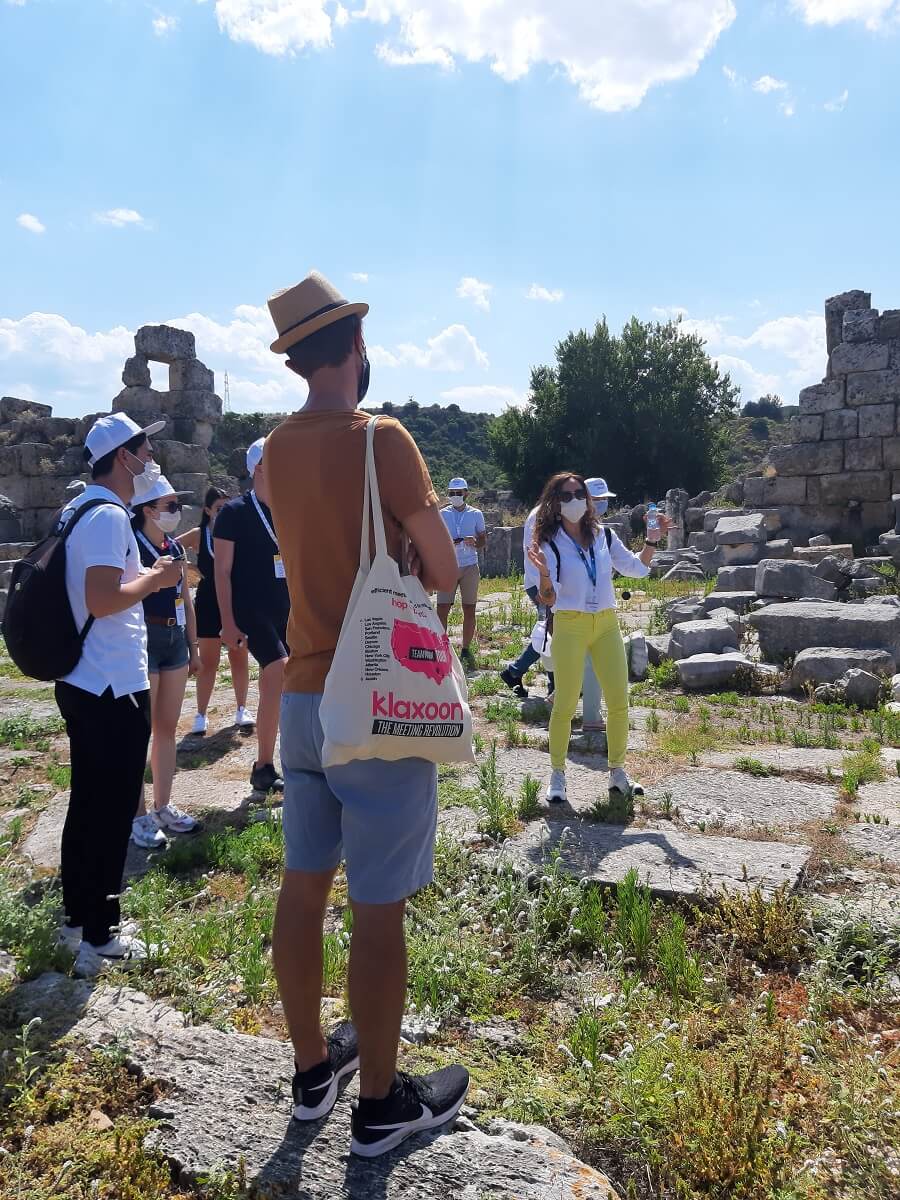
Time will tell whether safe tourism at the time of the pandemic is feasible in practice, but Turks did everything to minimize the risk. And the most unpredictable variable in the whole story of safe tourism is the human factor.
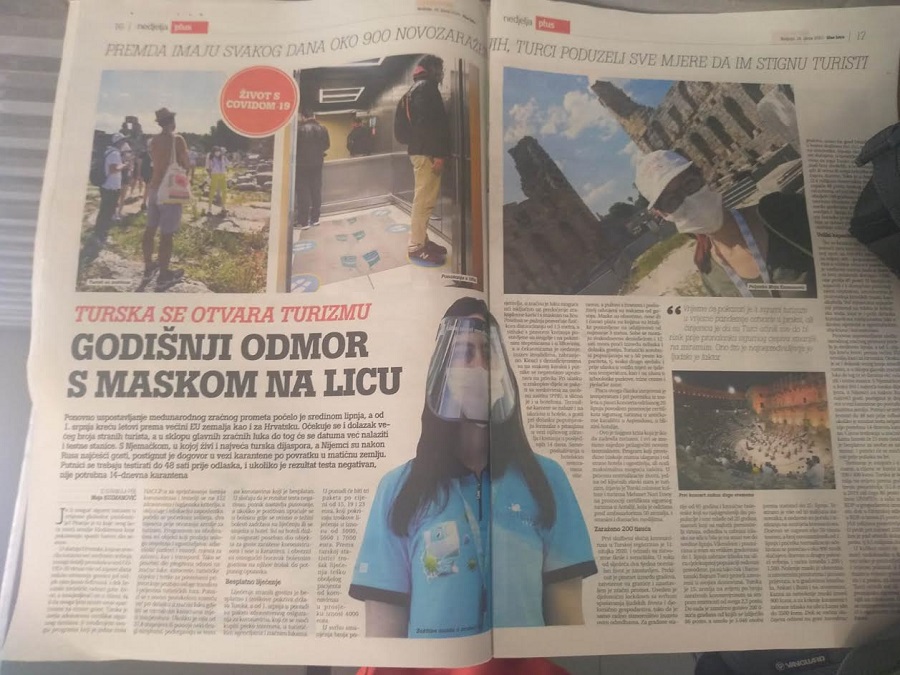
This article first appeared in Croatian in the print edition of Glas Istre.
Coronavirus: Croatia Lifting Self-Isolation Rule for People Coming from BiH
As the coronavirus situation evolves, so do the measures. As Index writes on the 29th of June, 2020, the Chief of the National Civil Protection Headquarters, Davor Bozinovic, announced the opening of borders with Bosnia and Herzegovina, ie the abolition of the mandatory two-week self-isolation for those entering Croatia from BiH, and the decision should be made tomorrow.
The elections are, let us remind you, this Sunday.
"We're in the phase of dancing with the virus, we're analysing everything on a daily basis. The EU will probably come out with recommendations, these talks are underway today. We'll probably liberalise the border crossing regime to some extent when it comes to EU citizens and for the citizens our neighbourring countries, meaning that those entering the Republic of Croatia will need to adhere to our epidemiological measures, but the obligation of self-isolation for those coming from BiH would no longer be in force. I expect that no later than tomorrow,'' said Bozinovic.
"Our decisions are in accordance with the Croatian constitution"
He also commented on the procedure of the Constitutional Court, which will examine whether the decisions of the Headquarters on the coronavirus measures were in accordance with the Constitution.
"The government has repeatedly said that our decisions are in accordance with the Constitution and the law. We've answered inquiries, we will continue to answer them. We passed a law so that the Headquarters could be operational as soon as possible and start making decisions during the first coronavirus outbreak. In an express procedure, the parliament authorised the National Civil Protection Headquarters to make the decisions in regard to the coronavirus pandemic,'' explained Bozinovic.
"All decisions are made based on [experts from] the profession"
"The results are a consequence of the fact that all decisions were made on the basis of the profession. As for the Headquarters, every decision was made by the profession, and behind the criticism I didn't see any epidemiologists, not even those who are members of SDP," he said.
In regard to potential new anti-coronavirus measures
He also commented on the larger number of coronavirus patients in Croatia and the introduction of possible new measures.
"More or less, all countries have opened up. We'll put out hotspots where they appear, but if we have local hotspots, it doesn't mean that measures should be applied throughout the country. The goal is to adopt balanced measures, I believe we'll show again that this is not the Swedish model, there are drastic differences in the results between Croatia and Sweden. There is no data that there are people with difficult clinical pictures currently, nor is anyone on a respirator in Croatia," Bozinovic said.
For more on coronavirus in Croatia, follow our dedicated section.
Popular Zrce Beach Clubs to Open Doors at Beginning of July
June 29, 2020 - The preconditions for opening the clubs on Zrce beach have been closely monitored in communication with competent epidemiologists and authorities since the beginning of the COVID-19 virus. Only now, when the prescribed decisions, measures and recommendations allow it, will the summer club season open.
Namely, HRTurizam reports that the clubs Kalypso, Papaya and Nomad will open their doors in the first week of July, while the club Noa has been operating for the last ten days.
One of the most recognizable club destinations in the world for the last 20 years has actively developed various tourist offers, music festivals, recreational facilities and other events and attracts foreign investors, raises quality and helps develop the entire destination of Novalja and Pag.
Club tourism on Zrce, in the usual circumstances, is characterized by high attendance, which in some periods of the season recorded over 13 thousand guests, so COVID-19 inevitably hit hard. This is supported by the fact that the beach season usually begins in mid-May.
"We believe that the opening of this summer season is one of the key segments of maintaining the continuity of tourist arrivals and visits, and thus a successful next season. The destination is kept current, and the arrival of interested guests who have been visiting Croatia and Zrce beach for many years can remain uninterrupted," said Tea Cafuta, a representative of the clubs on Zrce beach.
Recall, in Croatia, indoor events are allowed under strictly prescribed and certain conditions, but the clubs on Zrce beach see the advantage in the fact that all their events and club programs are held exclusively outdoors and are very large, allowing prescribed physical distances.
In parallel, in Switzerland, for example, up to a thousand people are allowed indoors, while in Italy, outdoor events are also allowed with respect to physical distance, even though it was one of the most affected countries, Cafuta points out and emphasizes:
"Tourists, but also domestic guests, who will visit the Croatian coast this summer, can be just as safe in clubs on Zrce as when going to the store, using public transport, staying and spending the night in a hotel and apartment or going to the beach."
For the safe and epidemiologically controlled work of outdoor clubs, Zrce beach facilities will adhere to all prescribed measures and recommendations and carefully monitor the further development of the situation in order to keep all segments of functioning and operation under full control.
"Clubs have a detailed plan of compliance with measures that include primarily strict control of the entrance of people, monitoring guests at all points within the facility, and the number of people by zones. Hygienic measures will also be observed, which include the installation of disinfectants at the entrances to facilities, toilets, and next to/at each bar inside the premises, disinfection of work surfaces, and the entire space as well as temperature measurement of employees and guests at the entrance. Then there are measures to regulate physical distance when guests enter the facility, the distance of tables inside the facility, reducing the number of chairs, the possibility of keeping guests in certain places, and all other measures that can create conditions for safe work and unburdened entertainment of their guests," Cafuta added.
Communication between club management in close cooperation with epidemiologists and the competent institution takes place regularly, which implies monitoring the changes and decisions of the Civil Protection Headquarters, instructions and recommendations of the CNIPH and following the situation, adapting and changing the way of work when needed. They concluded that this is ultimately the only way to ensure responsible and relaxed club fun this summer within epidemiological frameworks.
To read more about lifestyle in Croatia, follow TCN's dedicated page.
Alemka Markotic: "We'll Return Anti-Epidemic Measures Where Necessary"
As Poslovni Dnevnik writes on the 29th of June, 2020, Alemka Markotic, the director of the ''Dr. Fran Mihaljevic'' Clinic for Infectious Diseases in Zagreb said that the situation with the spread of the new coronavirus is continuously being monitored.
''We have two major hotspots, in Đakovo, where epidemiologists are coping very well with and so far we've not heard of any major problems, and in Zagreb. Zagreb is a big city and we can always expect that big cities have the largest number of patients. One focus is in the St. Ivan hospital, so far only one person has more severe symptoms. None of the patients is on a respirator and none of the lives of these patients are threatened, although almost 50 percent of the patients have come from the St. Ivan hospital and they're older than 60, so in a way, they're risk groups. So far, only two people are experiencing a more severe clinical picture, the others have a mild to moderate form of the disease, despite the fact that nine of them have pneumonia,'' she said.
Alemka Markotic concluded that the Croatian health system had shown itself to be stable and properly prepared.
In the first part of the epidemic of the new coronavirus, there were also more infected health workers, and as such she answered a question about the number of infected people working in health care.
''The crisis system is functioning, ready and organised. We have additional experience and our citizens can feel safe. The communication of experts in the country should be clear, correct and fair,'' she noted.
''Everyone's work is open for review. We've thought, corrected, and we're doing the same again now. The situation isn't critical, although we do need to be careful. It's important that the experts provide their opinions. The headquarters is not alone, there are a lot of people who are doing their jobs diligently,'' she added.
As for the critics, Alemka Markotic said that it would be good to state specifically what is good and what is not in their opinions.
''We gradually introduced some measures, then we gradually relaxed them, now we're going to need to return them where these critical situations have occurred,'' she said.
For more, follow our dedicated section on coronavirus.


